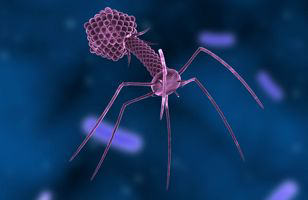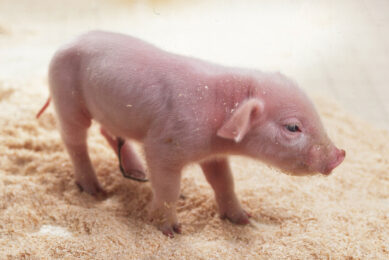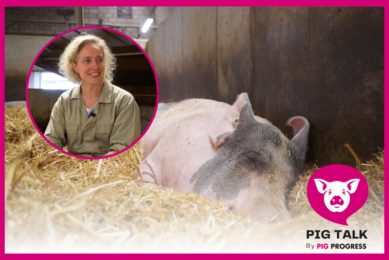Bacteriophages successful as alternative growth promoters

A team at the Kangwon National University, Republic of Korea found that bacteriophages shows promise as growth promoter in pigs. Its combination with other additives was also studied.
Two experiments were conducted to determine the effects of dietary supplementation with bacteriophage, probiotics and their combination on growth performance, apparent total tract digestibility (ATTD), faecal bacterial populations and serum immunoglobulins in growing pigs.
In the first experiment, dietary treatments included basal diet supplemented with 0 (control diet without any antimicrobials), 0.5, 1.0 and 1.5 g/kg commercial bacteriophage product. Bacteriophage product contained a cocktail of bacteriophages of Salmonella (Salmonella typhimurium, Salmonella enteritidis, Salmonella cholerasuisand Salmonella derby), Staphylococcus aureus, Escherichia coli and Clostridium perfringens types A and C.
Dietary increasing levels of bacteriophage linearly improved (P<0.05) the adg, adfi and attd of dm. at d 35 of the experiment, pigs fed diets supplemented with increasing levels of bacteriophage had greater (linear, p><0.05) fecal tab, bifidobacterium spp. and lactobacillus spp. and fewer (linear,>P<0.05>) faecal Clostridium spp. and coliforms. Dietary treatments had no effect (P>0.05) on serum immunoglobulin concentrations at d 35 of experiment.
In experiment 2, dietary treatments were basal diet without any antimicrobials (Control) and basal diets supplemented with 3.0 g/kg fermented probiotic product (P), 1.0 g/kg bacteriophage (B) and combination of 1.0 g/kg bacteriophage and 3.0 g/kg fermented probiotic product (BP). Probiotic products used herein contained Lactobacillus acidophilus, Bacillus subtilis and Saccharomyces cerevisiae. Pigs fed the B and BP diets had greater (P<0.05>) ADG, ADFI, G:F and ATTD of DM, CP and GE than that of pigs fed the control and P diets. Pigs fed the P diet had greater (P<0.05) adg, adfi and attd of cp than that of pigs the fed control diet. at d 35, pigs fed the bp diet had greater (>P<0.05>) faecal TAB, Bifidobacterium spp. and Lactobacillus spp. and fewer (P<0.05>) Clostridium spp. and coliforms than pigs fed the control diet. Also, pigs fed the P and B diets had greater (P<0.05>) Lactobacillus spp. and fewer (P<0.05>) coliforms at d 35 than that of pigs fed the control diet. Dietary treatments had no effect (P>0.05) on serum immunoglobulin concentrations (d 35).
The present results suggest that bacteriophages and probiotics both improve different aspects of grower pig’s performance but that bacteriophages are more effective than probiotics and would appear to offer an alternative to antibiotic type growth promoters.
The study was published in the October issue of the Journal of Feed Science and Technology.











